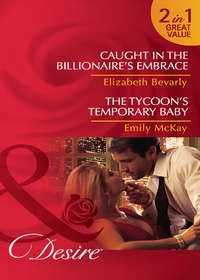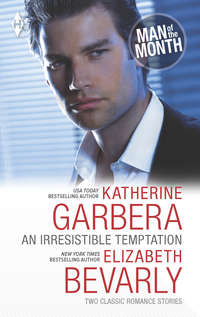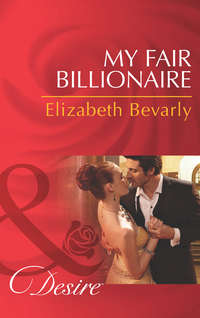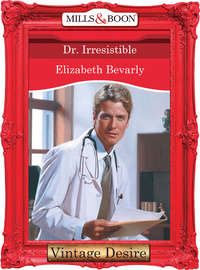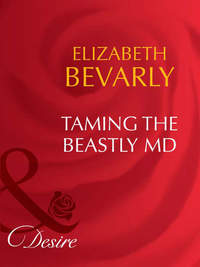
The Pregnancy Affair
She glanced down at the record on top. “Your mother became Natalie Carson, and you became Tate Carson. You all received new Social Security numbers and birth dates. The feds moved the three of you from Passaic, New Jersey, to Terre Haute, and both your parents were given new jobs. Your father at the hardware store and your mother at a local insurance company.”
Renny handed him copies of documents to support those assertions, too. She’d received everything she had to support her story via snail mail at her condo a few days ago, from her high school friend with the mad hacking skills. They were records she was reasonably certain she wasn’t supposed to have—she’d known better than to ask where they came from. The only reason Phoebe had helped her out in the first place was because Renny (A) promised to never divulge her source and (B) pulled in a favor she’d been owed by Phoebe since a sleepover thirteen years ago, a favor that might or might not have something to do with a certain boy in homeroom named Kyle.
These records, too, Tate accepted from her, but this time, his gaze fell to them immediately, and he voraciously read every word. When he looked up again, his pale gray eyes were stormy. “Are you trying to tell me...?”
She decided it would probably be best to just spill the news as cleanly and quickly as possible and follow up with details in the inevitable Q&A.
“You’re Joey the Knife’s grandson and legal heir. In spite of your father’s having ratted out some of his associates, your grandfather left his entire estate to you, as you’re the oldest son of his oldest son, and that’s what hundreds of years of Bacco tradition dictates. What’s more, it was Joey’s dying wish that you assume his position as head of the family and take over all of his businesses after his death.
“In short, Mr. Hawthorne,” Renny concluded, “Joseph Anthony Bacco Senior has crowned you the new Iron Don.”
Two
It took a minute for Tate to process everything Renata Twigg had dropped into his lap. And even then, he wasn’t sure he was processing it correctly. It was just too far outside his scope of experience. Too hard to believe. Too weird.
Renata seemed to sense his state of confusion, because she said, “Mr. Hawthorne? Do you have any questions?”
Oh, sure. He had questions. A couple. Million. Now if he could just get one of them to settle in his brain long enough for him to put voice to it...
One that finally settled enough to come out was “How could a mobster want to leave his fortune to the son of a man who double-crossed him?”
“Alleged mobster,” Renata corrected him. Again. Not that Tate for a moment believed there could be any shades of gray about a guy named Joey the Knife.
“If I really am Joseph Bacco’s grandson,” he began.
“You are definitely Joseph Bacco’s grandson.”
“Then why would he want to have anything to do with me? My father—his son—turned him in to the feds. Wouldn’t that kind of negate any familial obligation that existed prior to that? Or... I don’t know...put a contract on my father’s head?”
“Actually, your father didn’t turn Joey in to the feds,” Renata said. “Or any other member of the immediate Bacco family. All the information he gave to the feds had to do with other members of the organization. And he only gave up that information because the feds had enough evidence of his own criminal activity to put him away for forty years.”
“My father?” Tate said incredulously. “Committed crimes worthy of forty years in prison?”
Renata nodded. “I’m afraid so. Nothing violent,” she hastened to reassure him. “The charges against your father were for fraud, bribery, embezzlement and money laundering. Lots and lots of fraud, bribery, embezzlement and money laundering. There was never any evidence that he was involved in anything more than that. He was highly placed in your grandfather’s business. Wise guys that high up... Uh... I mean...guys that high up don’t get their hands that dirty. But your father didn’t want to go to prison for forty years.” She smiled halfheartedly. “He wanted to watch his little son grow up.”
Tate tried to take some comfort in that. Even so, it was hard to imagine James Carson involved in corruption. His memories of his father were hazy, but they evoked only feelings of affection and warmth. His dad, from what he recalled, was a good guy.
“Anyway,” Renata continued, “because your father never fingered anyone in the Bacco family proper—in fact, his agreement with the feds stated he would absolutely not, under any condition, incriminate his family—Joey the Knife never sought a vendetta. He really loved his son,” she added. “I think a part of him kind of understood why your father did what he did, so he could be with his son. But even more important, I think Joey really loved you—his first grandson. And since you had nothing to do with what your father did, he wanted you to come back and take your rightful place in the family.”
As what? Tate wondered. What kind of nickname would suit the lifestyle he’d assumed instead? Bottom Line Bacco? Joey the Venture Capitalist? Somehow those just didn’t have the same ring. Or did they? Renata had just said his grandfather had businesses. Maybe there was a bit of Bacco in Tate yet.
“You said my grandfather had businesses?” he asked.
She withdrew another collection of papers from her portfolio. “Several. He wants to put you in charge of Cosa Nostra, for one thing.”
“Yeah, you just pretty much said that when you told me he wants me to be the new Iron Don.”
She shook her head. “No, not that Cosa Nostra. That alleged one, I mean. Cosa Nostra is the name of a chain of Italian restaurants he owned up and down the Jersey shore.”
Tate took this page from her, too, and quickly scanned the figures. Unless Cosa Nostra was a three-star Michelin restaurant that served minestrone for five hundred bucks a bowl, its profits were way too high to be on the up-and-up.
“Yeah, these places look completely legitimate,” he said wryly.
“By all accounts, they are. Joey bought them with the proceeds from his waste-management business and his construction company.”
Yep. Totally legit.
“Since your grandfather’s death in the spring, everything’s been run by his second in command, who—” she hesitated for a moment “—who’s married to your father’s sister.”
Tate remembered then that Renata had mentioned there were other members of the “immediate” Bacco family. He’d been an only child all his life and had been under the impression that both of his parents were, too. At least, that was what his mother had always told him to explain why he didn’t have any aunts or uncles or cousins, the way all his classmates did.
Of course, all these new revelations might also explain why she’d always seemed to go out of her way to ensure that he stayed an only child—not just in the birth sense but in the social sense, too. She’d never encouraged him to make friends when he was growing up and had, in fact, been wary of anyone who tried to get too close. Although he’d had a handful of friends at school, she’d never let him invite any of them home or allowed him to play at their houses. He’d never had birthday parties or sleepovers, hadn’t been able to join Cub Scouts or play team sports or attend summer camp.
His childhood hadn’t exactly been happy, thanks to his solitary state. He’d always thought his mother was just overprotective. Now he wondered if she’d spent the rest of her life watching their backs. He wished he could ask her about all this, but he’d lost her to cancer when he was in college. His stepfather—who might or might not have known about anything—had been quite a bit older than his mother and had died less than a year later. There was no one around who could verify any of this for Tate. No one except Renata Twigg.
“I have other family members?” he asked.
She nodded. “Your father had two sisters, both older than him. Denise is married to Joseph Bacco’s second in command, Nicholas DiNapoli, aka Nicky the Pistol.”
“My aunt is mobbed up, too?”
“Allegedly. His other sister, Lucia, is married to Handsome Mickey Testa, the manager of one of Joey’s casinos.”
Did anyone in the mob not have a nickname? “Do I have cousins by them?” Tate asked.
She flipped another page. “Yes. Denise and Nicky have Sal the Stiletto, Dirty Dominic and... Oh. This is different.”
“What?”
“Angie the Flamethrower. Gotta give a girl credit for that. And Lucia and Mickey have Concetta.”
“Who I assume is Connie the something.”
“Well, right now she’s Connie the economics major at Cornell. But I wouldn’t rule anything out.”
“So my entire family are mobsters.”
“Alleged mobsters. And an economics major.”
Renata gazed at him with what could have been compassion or condemnation. He had no idea. She was very good at hiding whatever she was thinking. Well, except for a couple of times when he was pretty sure she’d been thinking some of the same things he’d been thinking, most of them X-rated. Her espresso eyes were enormous and thickly lashed, her dark hair was pulled back into the most severe hairstyle he’d ever seen and her buff-colored suit was conservative in the extreme.
Even so, he couldn’t shake the feeling that the image she presented to the world had nothing to do with the person she really was. Although she looked professional, capable and no-nonsense, there was something about her that suggested she wanted to be none of those things.
“So this law firm you work for,” Tate said. “Does it handle a lot of, ah, alleged mob work?”
She shook her head. “Tarrant, Fiver & Twigg is about as white-shoe a firm as you’re going to find. But, according to my father—who’s the current Twigg in the name—Joey the Knife and Bennett Tarrant’s father had some kind of shared history when they were young. No one’s ever asked what. But it was Bennett’s father who took him on as a client back in the sixties, and Bennett honored his father’s wish that he always look after Joey.”
“So Joey must have had some redeeming values then.”
“He loved his son. And he loved his grandson. I’d say that makes up for a lot.”
Tate looked down at the sheet that had his mother’s original information on it. She had been Isabel Danson before she married Joseph Jr.
When Renata saw where his attention had fallen, she told him, “For what it’s worth, your mother’s family wasn’t connected. Allegedly or otherwise.”
“Do I have family on that side, too?”
“I’m sorry, no. She was an only child.”
At least something his mother had told him was true.
“Her parents, both deceased now, were florists.”
Finally. Something beautiful to counter all the luridness of his heritage.
“So what do my aunts, uncles and cousins think of this?” Tate asked, looking up again. “Seems to me they might all be a little put off by Joey’s wanting a total stranger to come in and take over. Especially when that stranger’s father ratted out other members of the organization.”
“Right now, I’m the only person who knows you’re Joseph Anthony Bacco the Third,” Renata assured him. “Because of the delicate nature of the situation, I haven’t even told the senior partners of Tarrant, Fiver & Twigg who or where you are. Only that I found you and would contact you about Joey’s final wishes. I haven’t told the Baccos even that much.”
“And if I decide I’d just as soon not accept my grandfather’s legacy?” Tate asked.
Since it went without saying he wouldn’t be accepting his grandfather’s legacy. He wasn’t sure yet how he felt about accepting his grandfather’s family, though. The blood one, not the professional one. A lot of that depended on whether or not they were accepting of him. For all he knew, they were already dialing 1-800-Vendetta.
“The surviving Baccos were all aware of Joey’s wishes,” Renata said. “They’ve known all along that he wanted his missing grandson to be found and take over after his death. He never made any secret of that. But I don’t know how they felt about that or if they even expected anyone to ever be able to find you. If you don’t accept your grandfather’s legacy, then Joey wants everything to go to Denise and her husband so they can continue the tradition with their oldest son. That may be what they’ve been assuming would happen all along.”
“I don’t want to accept my grandfather’s legacy,” Tate said plainly.
“Then I’ll relay your wishes to the rest of the family,” Renata told him. “And unless you decide to approach them yourself, they’ll never know who or where you are. No one will. I’ll take the secret of your identity to my grave.”
Tate nodded. Somehow, he trusted Renata Twigg to do exactly that. But he still wasn’t sure what he wanted to do about his identity. As a child, he’d often fantasized about having a family. Just not one that was quite so famiglia. He’d be lying, though, if he said there wasn’t a part of him that was wondering what it would be like to be a Bacco.
“It’s my aunt’s and cousins’ birthright as much as it is mine,” Tate said. “They were a part of my grandfather’s life and lifestyle. And I—”
He halted there, still a little thrown by everything he’d learned. He searched his brain for something that might negate everything Renata had told him. But his memories of his father were hazy. The only clear ones were of the day he died. Tate remembered the police coming to their house, his mother crying and a guy in a suit trying to console her. As an adult looking back, he’d always figured the guy was from the insurance company, there to handle his father’s life-insurance policy or something. But after what Renata had told him, the guy might have been a fed, there to ensure that his mother was still protected.
He conjured more memories, out of sequence and context. His father swinging him in the ocean surf when he was very little. The two of them visiting an ancient-looking monkey house of some zoo. His father dancing him around in the kitchen, singing “Eh, Cumpari!,” a song Tate had never heard anywhere else except for when...
Oh, God. Except for when Talia Shire sang it in The Godfather, Part III.
“There are more photos,” he heard Renata say from what seemed a very great distance. “Joey had several framed ones of you and him on shelves in his office until the day he died.”
Tate looked at the photo in his hand again. The Iron Don honestly looked like he could be anyone’s grandfather—white hair and mustache, short-sleeved shirt and trousers, grinning at the boy in the picture as if he were his most cherished companion. There were no gold chains, no jogging suits, nothing to fit the stereotype at all. Just an old man happy to be with his family. Yet Tate couldn’t remember him.
On some level, though, a lot of what Renata said explained his memories. He couldn’t recall taking a long road trip anywhere until his mother married William Hawthorne. So how could he have been in the ocean when he was so young? Unless he’d lived in a state that had a coastline. Like New Jersey. And there were no ancient-looking monkey houses in this part of the country. But some zoos in the Northeast had lots of old buildings like that.
He looked at Renata Twigg. “I’m the grandson of a mobster,” he said softly. This time, the remark was a statement, not a question.
“Alleged mobster,” she qualified again, just as quietly.
“But real grandson.”
“Yes.”
So Tate really did have family out there with whom he would have grown up had things been different. He would have attended birthday parties and weddings and graduations for them. Vacationed with them. Played with them. He wouldn’t have spent his childhood alone. Strangely, if his father had gone into the family’s very abnormal business, Tate might have had a very normal childhood.
The pounding of footsteps suddenly erupted in the hall outside his office. Tate looked up just in time to see a man in a suit, followed by a harried Madison, come hurrying through the door. When he halted, the man’s jacket swung open enough to reveal a shoulder holster with a weapon tucked inside. Tate was reaching for his phone to hit 9-1-1 when his presumed assailant flipped open a leather case in his hand to reveal a badge with a silver star.
“Inspector Terrence Grady,” the man said. He reminded Tate of someone. An older version of Laurence Fishburne, maybe. “United States Marshals Service. Tate Hawthorne, you’ll have to come with me immediately.”
“Sir, he pushed right past me,” Madison said. “I tried to—”
“It’s all right, Madison,” Tate said as he stood.
Renata stood at the same time, though she didn’t cut quite as imposing a figure as Tate was trying to achieve himself. Actually, it was kind of hard to tell if she’d stood at all, because she barely came to his shoulder. Small women. He never knew what to do with small women. They were just so...small. But Renata Twigg had already inspired a few interesting ideas in his head. Given the chance—which, for some reason, he was hoping for—he was sure he could find a few more.
Instead of responding to Inspector Grady, Tate, for some reason, looked at Renata. He expected her to look as confused as he felt over the marshal’s sudden appearance. Instead, a blush was blooming on her cheeks, and she was steadfastly avoiding his gaze.
He turned back to the marshal. “I don’t understand. Why should I go anywhere with you?”
Grady—maybe not Laurence Fishburne, but he looked like someone Tate knew—said, “I can explain on the way.”
“On the way where?”
“We need to get you someplace safe, Mr. Hawthorne.” And then, just in case Tate had missed that part before, he added, more emphatically this time, “Immediately.”
Tate straightened to his full six-three and leveled his most menacing gaze on the marshal. “I’m not going anywhere. What the hell does a federal marshal have to do with—”
Hang on. Didn’t federal marshals run the Witness Protection Program? Tate looked at Renata again. She was looking at something on the other side of the room and fiddling with the top button of her shirt in a way that might have been kind of interesting in a different situation. Under the circumstances...
“Renata,” he said softly.
She was still looking at the wall and twisting her button, but she lifted her other hand to the twist of dark hair at her nape, giving it a few little pats, even though not a single hair was out of place. “Yes?”
“Do you have any idea why a federal marshal would show up at my front door less than an hour after you did?”
“Mr. Hawthorne,” Grady interrupted.
Tate held up a hand to halt him. “Renata?” he repeated.
Finally, she turned her head to look at him. This time he knew exactly what she was thinking. Her eyes were a veritable window to her soul. And what Renata’s soul was saying just then was Oh, crap.
In spite of that, she said, “No clue.”
“Mr. Hawthorne,” Grady said again. “We have to leave. Now. Explanations can wait.”
“Actually, Inspector Grady,” Tate said, returning his attention to him, “you won’t have much to explain. I’m guessing you’re here because my grandfather was Joseph Bacco, aka the Iron Don, and now that he’s gone, he wants me to be the new Iron Don.”
“You know about that?”
“I do.”
Grady eyed him warily for a moment. “Okay. I wasn’t sure you were even aware you had a WITSEC cover, if your mother ever made you privy to that or if you remembered that part of your life. The other thing I came here to tell you is that your WITSEC cover has been compromised, thanks to a hack in our files we discovered just this morning. We need to put you somewhere safe until we can get to the bottom of it.”
Tate barely heard the second part of the marshal’s comment. He was too focused on the first part. “You knew my mother?”
Grady was visibly agitated about his lack of compliance with the whole leaving immediately thing, but he nodded. “I was assigned to your father and his family after he became a state’s witness. The last time I saw your mother or you was the day your father died.”
Okay, that was why he looked familiar. The man in the suit that day must have been a younger Terrence Grady.
“Look, Mr. Hawthorne, we can talk about this in the car,” he said. “We don’t know that there’s a credible threat to your safety, but we can’t be sure there isn’t one, either. There are an awful lot of people interested in taking over your grandfather’s position—the one they know your grandfather wanted you to assume—and it’s safe to say that few of them have your best interests at heart. Last week, someone accessed your federal file without authorization, so your WITSEC identity is no longer protected. That means I have to get you someplace where you are protected. Immediately.”
“Um, Inspector Grady?” Renata said nervously. “I, uh... That is, uh... Funny story, actually...”
“Spit it out, Ms...” Grady said.
She began patting her bun again, but this time kept doing it the entire time she spoke. “Twigg. Renata Twigg. And, actually, the person who compromised Mr. Hawthorne’s WITSEC identity? Yeah, that, um...that might have been, ah...me.”
Grady eyed her flatly. “You’re the one who told Mr. Hawthorne about his past?”
Something in his tone made Renata pat her bun harder. “Um...maybe?”
Tate was going to tell Grady that she absolutely had been the one to tell him about that, but he was kind of enjoying how her bun patting was causing strands of hair to come loose. Her hair was longer than it looked.
“You have access to federally protected files, have you?” Grady asked. “Or do you have hacking skills that allowed you to access those files? Because hacking a federal database is a Class B felony, Ms. Twigg. One that carries a sentence of up to twenty years.”
She looked a little panicked by that. “Of course I don’t have hacking skills,” she said. “Are you kidding? I majored in English specifically so I wouldn’t have to do the math.”
“Well, which is it, Ms. Twigg?” Grady asked. “How did you discover Mr. Hawthorne’s identity? And why did you go looking for him in the first place?”
She bit her lip anxiously. Tate tried not to be turned-on.
Quickly, she told Grady about Joey the Knife’s will and his intentions for his grandson. Grady nodded as she spoke, but offered no commentary.
When she finished, he asked again, “And just how were you able to locate Mr. Hawthorne?”
At first, she said nothing. Then, very softly, she asked, “Class B felony, you say? Twenty years?”
Grady nodded.
For a moment, Renata looked like the proverbial deer in the headlights, right down to the fawn-colored suit and doe eyes. Then her expression cleared, and she said, “Craigslist.”
Grady looked confused. Tate wasn’t surprised. He’d been confused since seeing Renata at his front door.
“Craigslist?” Grady echoed.
Renata nodded. “I found a computer whiz on Craigslist who said he could find anyone for anybody for the right price. He helped me locate Mr. Hawthorne.”
“His name?” Grady asked. Dubiously, if Tate wasn’t mistaken.
Renata briefly did the deer-in-the-headlights thing again. Then she told him, “John something, I think he said. Smith, maybe?”
Grady didn’t look convinced. “And do you know if Mr., ah, Smith did anything else with this information he found for you? Like, I don’t know...sold it to someone else besides you?”
“I’m sure he’s totally trustworthy and kept it all completely confidential,” Renata said.
Now Grady looked even less convinced. “A guy on Craigslist who says he can find anybody for anyone for money and calls himself John Smith is totally trustworthy,” Grady reiterated. Blandly, if Tate wasn’t mistaken.
Renata nodded with much conviction and repeated, “Totally.”
Grady looked at her for a long time, as if weighing a number of scenarios. Finally he growled, “We don’t have time for this right now. We need to get Mr. Hawthorne somewhere safe. And until it’s all sorted out, you’re coming, too, Ms. Twigg.”
That finally stopped the bun patting. But it restarted the button fumbling. So much so that Renata actually undid the button, and then another below it, revealing a tantalizing glimpse of lace beneath. Which was weird, because in light of developments over the last several minutes, the only thing Tate should find tantalizing about Renata Twigg was thoughts of her having never entered his life in the first place.


